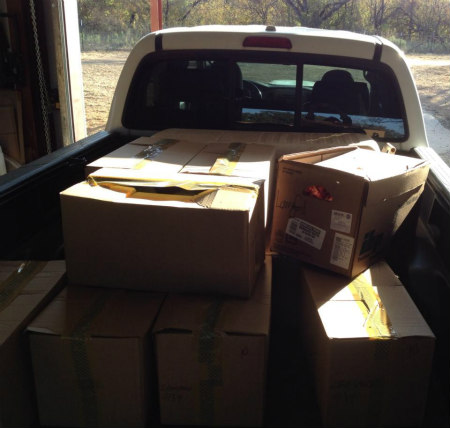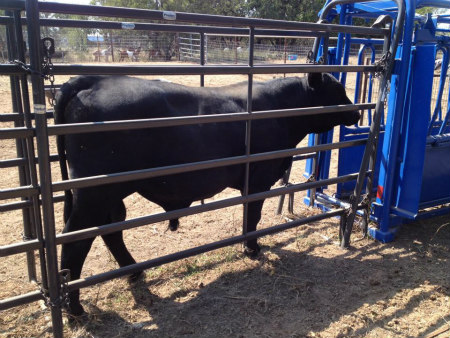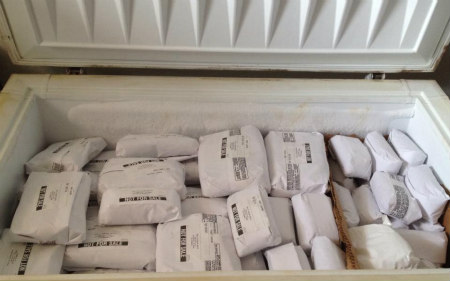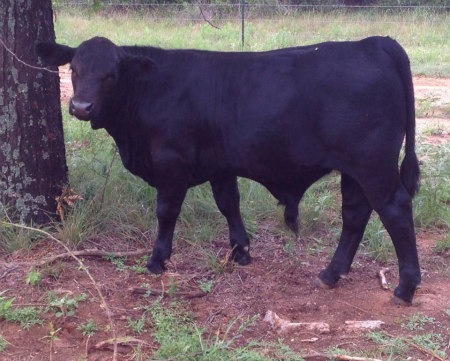Farm Fresh BlogSaturday, October 17 2015
Beef - It's Who's For Dinner The grocery store as we know it is a relatively new addition in the history of mankind. The modern grocery allows us to fill our pantry with a dizzy array of food and spices. A shopper may travel the world by merely pushing a cart through the dairy aisle, past frozen foods, and into what is loosely described as fresh vegetables. By convenience and variety, the shopper is lulled into hunting and gathering through the tiled aisles. Within two generations, this dazzling display of choices has removed the shopper from his food source. The grocery store has become a feed lot of sorts as shoppers are only able to buy what they are offered, and what appears to be an ocean of choices is in reality a desert of diversity. As a shopper you really don't have as many choices as it appears. Not only is diversity disappearing, but are we fooled into believing fresh fruits and vegetables are offered year round. And more important, shoppers are spared the ugly reality that someone had to die before that meat was neatly packaged and placed in the Buy-One-Get-One-Free bin. "To cook, we must kill." Richard C. Morais, The Hundred-Foot Journey By offering boneless and skinless cuts of meat, the consumer is able to remove himself even further from the idea that he is eating an animal that once breathed. It is easy to shop for steak in the grocery store. And when the kids don't want Hamburger Helper leftovers tonight, it's painless to toss the container in the garbage. But the cold, hard reality is that someone did die, and unless I plan on becoming a vegetarian, which leaves its own ecological footprint, I cannot ignore that. I choose instead, to become more aware not only of what I'm eating, but of "who" I'm eating. We raise beef cattle. We run a small cow/calf operation where the animals are treated as humanely as possible before the calves are sold at auction or to local buyers. We choose our auction barns based not on location, but on how well they handle the animals in their care. Our goal is not only to get top dollar for our calves, but to also have them treated well. It is important to me that even though the animal may ultimately end up on the table, during his time with us, he is treated with compassion, as I believe that you can tell a lot about a man by the condition of his animals. "The godly care for their animals, but the wicked are cruel." Proverbs 12:10 We butchered a bull calf two weeks ago and picked up the meat yesterday.
It was a cruel twist of fate that landed him in the freezer instead of staying with the herd as a spare bull. This country is rough enough that I feel better using the "heir and a spare" approach to ranching. This calf was a full brother to our current breeding bull. The build and quiet temperament on this young bull was so nice that we had decided to keep him instead of selling him. As luck would have it though, he injured his shoulder last winter. Although he was still able to get around on it, and even play on it, we had our doubts about whether or not he would be a successful breeding bull and because he was slower than the herd, he was more vulnerable to predators. So with a heavy heart, I sent him to Freezer Camp. And like the gentleman he was, Cripple Bull loaded into the trailer like a champ, and unloaded at the butcher's as tame as any show steer.
I watched him walk away with his familiar shuffle and I was reminded how easy it is for people at the grocery store to pick up a clean package of beef and place it in their cart, and how hard it is for those of us who have raised these animals as babies to watch them walk to their deaths. I feel better about his death when I know that he lived a happy life - with one bad moment. I know what he ate. I know what chemicals are in his body. I know how he was treated for his entire life, for his life and death were my responsibility. And that really is the essence of ranching. Cripple Bull filled one chest freezer and half of another.
His sacrifice will feed our family for a good long time. And perhaps that is what grocery stores have taken away from us, the gritty understanding that the meat on your table was someone's sacrifice. When you have hauled hay in the bitter cold, when you have held back feed from other cows to make sure the cripple one gets his share, when your heart has smiled because a cow recognizes you, and when you send that cow to be killed, then you appreciate every bite of that meat, and you don't waste his life. You don't waste his sacrifice.
Comments:
You are why He gave us dominion.
Posted by Andrea on 10/17/2015 - 06:32 PM
This is also why I raise my meat. Beef, pork, lamb as well
as eggs and milk. Every time is hard. Many I was there when they were born and I am there when they die. I feel we all need to know where our food comes from. Especially our meat and other animal products. We need to demand that they be raised and slaughtered with compassion. While slaughter day is hard, as it is when some step onto someone else's trailer, I know I did my best to give them a good life with a quick, humane end without fear or pain. Thank you for writing about this in your blog. It's an important subject.
Posted by Suzanne Punch on 10/17/2015 - 07:40 PM
We raised our first steer last year and to remind the kids that he was not a pet, we called him Cheeseburger. When I'm cooking steaks for the family, someone will invariably ask, "Is this Cheeseburger?" He sure is good. It was hard to part with him, but now everyone in my family appreciates where their meat comes from, what it took to get it to the table, and what goes into commercial meat that makes it not so good.
Posted by Patty on 10/18/2015 - 02:09 PM
|











 Baby Cripple Bull
Baby Cripple Bull